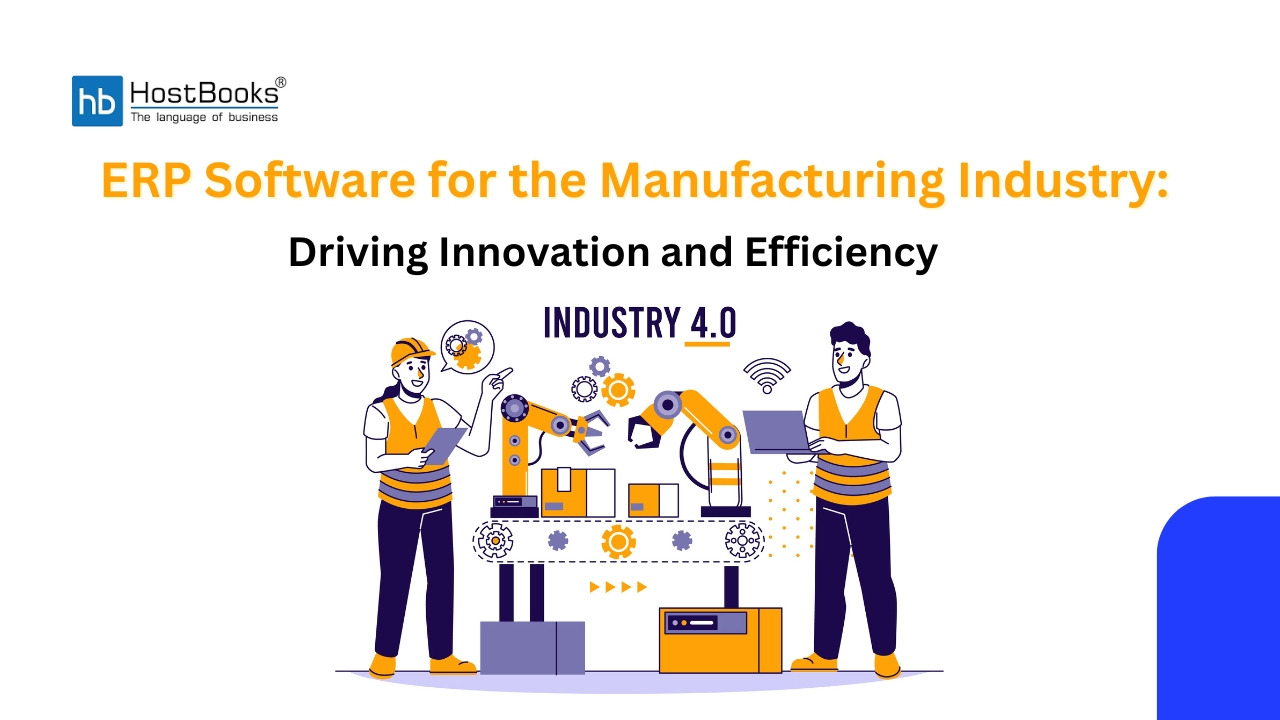In today's competitive business environment, manufacturers are under constant pressure to improve productivity, reduce costs, and enhance customer satisfaction. One of the most effective ways to achieve these goals is by implementing an Enterprise Resource Planning (ERP) system. ERP software for the manufacturing industry offers a comprehensive solution to integrate key business functions and streamline operations, enabling manufacturers to respond quickly to market demands and enhance their bottom line.
What is ERP Software for Manufacturing?
ERP software for the manufacturing industry refers to a suite of integrated applications that help manufacturers manage and automate their core business processes. These include production planning, procurement, inventory management, financials, human resources, and sales. By bringing all these processes into a unified platform, ERP allows manufacturers to gain a holistic view of their operations, optimize workflows, and ensure better coordination between departments.
Why is ERP Important for Manufacturing?
The manufacturing sector faces unique challenges, such as managing complex supply chains, fluctuating customer demands, and maintaining quality standards. ERP systems are designed to address these challenges by offering several key advantages:
- Centralized Data Management: With ERP software, manufacturers can store all their data in one system, making it easily accessible for everyone in the organization. This reduces the risk of errors due to data duplication or miscommunication and ensures consistency across departments.
- Enhanced Production Planning: ERP software provides manufacturers with tools to plan, schedule, and track production runs efficiently. With real-time data on machine availability, workforce capacity, and raw material inventory, production managers can make informed decisions to minimize downtime and increase throughput.
- Real-Time Monitoring: ERP systems provide real-time insights into various aspects of manufacturing operations, including inventory levels, order status, and production performance. This allows manufacturers to quickly identify and resolve bottlenecks, making operations more agile and responsive to changes in demand.
- Improved Inventory Management: Effective inventory management is crucial for manufacturers to avoid overstocking or stock outs, both of which can negatively impact operations and profitability. ERP systems track inventory levels in real time, enabling manufacturers to reorder supplies automatically, maintain optimal stock levels, and reduce excess inventory costs.
- Quality Control: Maintaining product quality is a priority for manufacturers. ERP systems help ensure consistent quality by tracking production data, conducting inspections, and flagging any issues in the production process. With this data, manufacturers can identify areas for improvement and make quality control more systematic.
- Cost Efficiency: ERP software enables manufacturers to optimize resources, reduce waste, and improve overall operational efficiency. By automating routine tasks and improving forecasting accuracy, ERP systems help manufacturers minimize unnecessary costs and improve their profitability.
Key Features of ERP Software for Manufacturing
- Production Management: ERP software provides tools for managing production schedules, work orders, and resource allocation. This ensures that the right materials and workforce are available at the right time, improving production flow and reducing lead times.
- Supply Chain Management: ERP systems streamline the entire supply chain process, from procurement to delivery. Manufacturers can track supplier performance, manage purchase orders, and optimize delivery schedules, ensuring that materials are sourced efficiently and on time.
- Financial Management: ERP solutions offer integrated financial tools, including accounting, invoicing, and financial reporting. This enables manufacturers to have a clear view of their financial health and make more informed budgeting and cost control decisions.
- Human Resources Management: Manufacturing companies often employ large workforces. ERP systems help manage payroll, employee schedules, and performance metrics, making HR processes more efficient and reducing administrative burdens.
- Customer Relationship Management (CRM): Many ERP systems for manufacturing include CRM features that help manage customer orders, track sales opportunities, and provide better customer service. By integrating CRM with production data, manufacturers can improve their ability to meet customer demands and enhance relationships.
- Business Intelligence and Reporting: ERP systems often come with built-in analytics tools that help manufacturers gain insights into their business performance. These tools enable manufacturers to analyze production data, monitor key performance indicators (KPIs), and make data-driven decisions to improve operations.
Overcoming Challenges in ERP Implementation
While ERP software can provide significant benefits to the manufacturing industry, its implementation is not without challenges. Here are some common hurdles manufacturers may face during ERP adoption:
- High Initial Costs: The cost of implementing ERP software can be significant, especially for small and medium-sized businesses. However, the long-term benefits, such as increased efficiency and cost savings, often justify the investment.
- Customization Needs: Every manufacturing company has unique needs and processes. Customizing the ERP system to fit specific business requirements can be time-consuming and costly, but it ensures that the system delivers maximum value.
- Employee Training: ERP systems are complex, and employees need to be properly trained to use them effectively. Without adequate training, there can be resistance to change and suboptimal usage of the system.
- Data Migration: Migrating data from legacy systems to a new ERP system can be challenging. Ensuring the accuracy and completeness of the data is critical for the successful adoption of the system.
Conclusion
ERP software for the manufacturing industry is an essential tool for companies seeking to optimize their operations, reduce costs, and improve efficiency. By integrating core functions and providing real-time data, ERP helps manufacturers streamline processes, enhance production planning, and improve decision-making. Despite the challenges of implementation, the benefits of ERP software far outweigh the investment, offering manufacturers the tools they need to remain competitive in an increasingly complex market.

